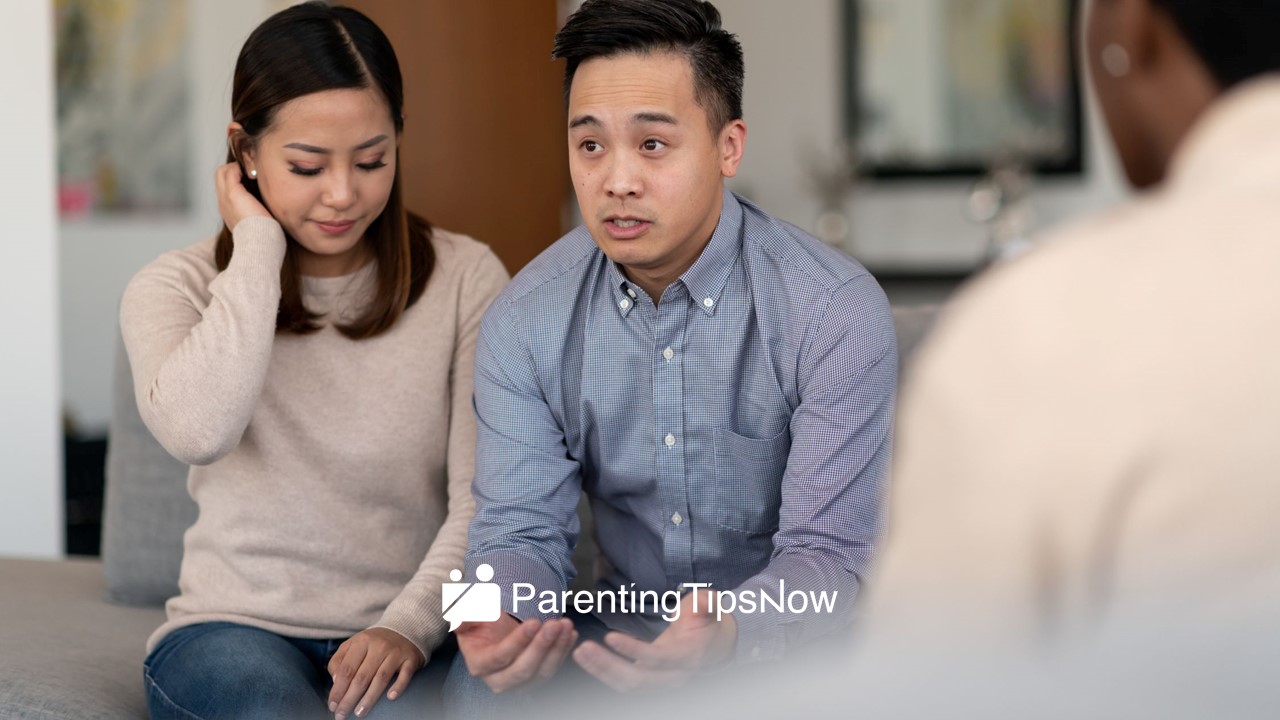Table of Contents
ToggleMarriage counseling in the Philippines is a delicate art that requires skillful techniques to navigate the complex dynamics of relationships. Filipino therapists have honed their craft by blending traditional practices with modern approaches to provide effective interventions for couples in need. From the bustling streets of Manila to the serene shores of Palawan, Filipino therapists are employing innovative strategies to help mend fractured relationships and strengthen marital bonds. In this article, we delve into the six most effective marriage counseling techniques used by these skilled Filipino professionals, offering insights into how they support couples in overcoming challenges and fostering a deeper connection with each other.
The Importance of Marriage Counseling in the Philippines
Marriage counseling in the Philippines holds significant importance as it serves as a crucial resource for couples facing relationship challenges. In a society where traditional family values are deeply rooted, seeking help from a therapist can break the stigma surrounding marriage issues and provide a safe space for individuals to voice their concerns. Filipino therapists often emphasize the cultural context of relationships, understanding that family dynamics and societal expectations play a vital role in shaping marital problems.
Furthermore, marriage counseling techniques utilized by Filipino therapists cater to the unique cultural nuances prevalent in Philippine society. By integrating elements of Filipino values such as pakikisama (harmony), hiya (sense of shame), and pagtitiwala (trust), therapists can effectively address underlying issues within a relationship. Moreover, placing importance on spiritual beliefs and faith-based practices can offer couples a holistic approach to healing and reconciliation in their marriages. This culturally sensitive approach not only enhances communication between partners but also fosters greater understanding and empathy toward each other’s perspectives.

Are there Books About Marriage Counseling Techniques that You Can Buy? Online and Retail Stores
Books about marriage counseling techniques are readily available both online and in retail stores, offering a wealth of knowledge and strategies for couples seeking to improve their relationships. Whether you prefer browsing through shelves at a bookstore or making quick purchases online, such as on Lazada or Shopee, there is no shortage of resources to guide you through the complexities of marital issues. From renowned authors to experienced therapists, these books provide valuable insights and practical advice on communication skills, conflict resolution, and fostering emotional intimacy.
By investing in these resources, individuals can gain a deeper understanding of the various approaches used by professionals in the field of marriage counseling. Moreover, these books offer a convenient way for couples to access expert guidance at their own pace and convenience, allowing for self-reflection and growth within the relationship. As marriages evolve over time, having access to such literature can serve as a valuable tool for navigating challenges and strengthening connections between partners.

The Price Range of Marriage Counseling Books: How Much?
The price range of marriage counseling books varies widely, with some available for as little as $10 and others reaching up to $50 or more. Factors such as the author’s reputation, the complexity of the techniques discussed, and the availability of accompanying resources can all influence the cost. It’s important for couples to consider how much they are willing to invest in their relationship when choosing a marriage counseling book, balancing costs with potential benefits.
While some may find free resources online or cheaper options appealing, investing in a high-quality marriage counseling book can provide valuable insights and guidance that may not be easily accessible elsewhere. Couples should also take into account the long-term impact that working through these resources can have on their relationship, making it a worthwhile investment in their future together. Ultimately, the price range of marriage counseling books is reflective of the depth and breadth of knowledge they offer, providing couples with tools to navigate challenges and strengthen their bond.

What are the Proven and Effective Marriage Counseling Techniques in the Philippines? An Overview
One of the proven marriage counseling techniques widely used by therapists in the Philippines is emotion-focused therapy (EFT). This approach focuses on identifying and addressing underlying emotions that may be driving conflicts within the relationship. By helping couples express their feelings and needs openly, EFT aims to foster emotional connection and deepen understanding between partners.
Another effective technique utilized by Filipino therapists is cognitive behavioral therapy (CBT). CBT helps couples identify negative thought patterns and behaviors that may be contributing to marital issues. Through cognitive restructuring and behavior modification, couples can learn more positive ways of thinking and interacting with each other, leading to improved communication and problem-solving skills within the relationship. These evidence-based techniques have shown promising results in helping Filipino couples navigate challenges and strengthen their bonds.
Here are 6 most effective marriage counseling techniques used by Filipino therapists:
1. Reflective listening: Marriage counseling technique in the Philippines
Reflective listening is a powerful marriage counseling technique utilized by therapists in the Philippines to foster better communication between partners. Through this method, couples are encouraged to truly listen to each other’s thoughts and feelings without judgment or interruption. By reflecting on what their partner has said, individuals can validate each other’s experiences and create a deeper sense of understanding and empathy within the relationship.
In the context of Filipino culture, reflective listening can be particularly impactful as it aligns with the values of respect and harmony in relationships. This technique allows couples to navigate through conflicts more effectively by promoting active listening and acknowledging each other’s viewpoints. By incorporating reflective listening into marriage counseling sessions, Filipino therapists help couples build stronger emotional connections and develop healthier communication patterns that can strengthen their bond over time.

2. Emotionally focused therapy: Marriage counseling technique in the Philippines
Emotionally focused therapy (EFT) has emerged as a widely utilized approach in marriage counseling in the Philippines due to its focus on emotions and attachment within relationships. Filipino therapists often find success using EFT as it allows couples to delve into their deepest feelings and vulnerabilities, fostering a deeper connection and understanding between partners. By unraveling underlying emotional patterns, EFT helps couples break free from negative cycles of communication and behavior, paving the way for healing and renewed intimacy within marriages.
In the context of Philippine culture, EFT provides a unique framework for addressing issues related to family dynamics, societal expectations, and interdependence within relationships. Therapists can navigate these complex cultural nuances with sensitivity, helping couples navigate conflicts while acknowledging the impact of societal pressures on their marriage. By incorporating local values of respect, faith, and tradition into the therapy process, EFT offers a culturally relevant approach that resonates deeply with Filipino couples seeking support in strengthening their bond.

3. Narrative therapy: Marriage counseling technique in the Philippines
Narrative therapy is a powerful marriage counseling technique gaining popularity among Filipino therapists due to its focus on the stories and narratives that shape individuals’ perceptions of their relationships. In this approach, couples are encouraged to explore the cultural influences that contribute to their relationship dynamics, allowing them to gain a deeper understanding of each other’s perspectives. By reframing negative narratives into more positive and empowering ones, couples can effectively address conflicts and enhance communication in their marriages.
What sets narrative therapy apart is its emphasis on collaborative dialogue between the therapist and the couple, creating a safe space for self-exploration and mutual understanding. Through this process, couples in the Philippines are able to not only resolve issues but also strengthen their emotional connection by acknowledging and appreciating each other’s unique experiences within the context of their shared journey. This approach resonates well with Filipino values of pakikipagkapwa (relating with others) and hiya (sense of shame), as it promotes empathy, validation, and acceptance as essential components for healthy marital relationships.

4. Gottman Method: Marriage counseling technique in the Philippines
The Gottman Method, a renowned marriage counseling technique originating from the United States, has gained popularity among Filipino therapists for its evidence-based approach to fostering healthy relationships. This method focuses on strengthening couples’ friendship, intimacy, and conflict-resolution skills through various exercises and interventions. By emphasizing emotional connection and communication strategies, the Gottman Method equips partners with valuable tools to navigate challenges and build a more satisfying relationship.
In the context of the Philippines, where family dynamics play a significant role in marriages, the Gottman Method offers a structured framework that addresses cultural nuances while promoting open dialogue and understanding between spouses. Therapists who incorporate this technique into their practice often highlight the importance of embracing vulnerability and empathy as key components of successful marital therapy sessions. Ultimately, by integrating principles from the Gottman Method into their work with Filipino couples, therapists can help strengthen bonds and promote lasting harmony in relationships across diverse cultural backgrounds.

5. Imago relationship therapy: Marriage counseling technique in the Philippines
Imago relationship therapy is a marriage counseling technique gaining popularity in the Philippines for its focus on healing and growth within relationships. By exploring childhood wounds and traumas that impact adult partnerships, Imago therapy provides a holistic approach to understanding and resolving conflicts. Couples are encouraged to communicate openly, actively listen, and empathize with each other’s experiences to promote emotional connection.
In the context of Filipino culture, where family ties hold significant importance, Imago therapy helps couples navigate traditional roles and expectations while fostering individuality within the relationship. Through exercises like mirroring and validating each other’s feelings, partners learn to build trust and create a safe space for vulnerability. This method highlights the belief that addressing underlying emotional patterns can lead to deeper intimacy and mutual respect in marriages across the Philippines.

6. Solution-focused therapy: Marriage counseling technique in the Philippines
When it comes to marriage counseling in the Philippines, solution-focused therapy stands out as a powerful and innovative technique. By focusing on achievable solutions rather than delving into past issues, this approach helps couples envision a positive future together. Filipino therapists find that this method fosters hope, empowers individuals within the relationship, and encourages concrete actions to improve communication and harmony. Through guided conversations and goal setting, Solution-Focused Therapy provides practical tools for couples to navigate challenges and build a stronger bond.
In the context of Philippine culture, where family is highly valued, solution-focused therapy aligns well with the traditional emphasis on harmony and unity within relationships. Therapists often integrate cultural values and belief systems into this approach, recognizing the significance of familial relationships in shaping marital dynamics. By drawing on these cultural elements during therapy sessions, couples can tap into deep-seated sources of strength and resilience that contribute to their journey toward healing and growth. In essence, solution-focused therapy not only addresses marital issues but also honors the rich tapestry of Filipino traditions that shape couples’ experiences in navigating their relationship paths.

What Exactly is Marriage Counseling?
Marriage counseling is a therapeutic process that involves couples seeking professional help to address issues within their relationship. It provides a safe space for partners to communicate openly, work through conflicts, and enhance their understanding of each other. Therapists trained in marriage counseling techniques use various approaches, such as cognitive-behavioral therapy, psychotherapy, and emotional-focused therapy, to help couples navigate challenges and strengthen their bond.
One key aspect of marriage counseling is the focus on improving communication between partners. Effective communication skills are essential to fostering healthy relationships and resolving conflicts constructively. By learning how to express emotions, thoughts, and needs effectively, couples can better understand each other’s perspectives and work together toward finding solutions to their problems. Marriage counseling also often involves setting goals for the relationship, establishing healthy boundaries, and enhancing intimacy between partners.

How Long Does Marriage Counseling Last?
Marriage counseling duration is not set in stone, as each couple’s needs and progress vary. Some couples may feel significant improvements after just a few sessions, while others may require more time to address deeper issues. It is essential for both partners to commit to the process and be open to change for the counseling to be effective. The duration of marriage counseling ultimately depends on the couple’s willingness to work through their challenges and actively participate in the therapeutic process.
The journey of marriage counseling can unfold in unexpected ways, with some couples finding resolution quickly, while others may need ongoing support over an extended period. Therapists often tailor the length of counseling based on the specific needs and progress of each couple. It is crucial for couples to communicate openly with their therapist about their goals and concerns to ensure they are receiving the appropriate level of support and guidance throughout their therapy journey.

What are the Benefits of Marriage Counseling for Filipino Couples?
Marriage counseling holds immense benefits for Filipino couples seeking to strengthen their relationship. In a culture where family and tradition play significant roles, therapy provides a safe space for couples to navigate challenges and conflicts effectively. Therapists in the Philippines often integrate cultural values into their counseling techniques, promoting understanding and empathy between partners.
Additionally, marriage counseling helps Filipino couples improve communication, rebuild trust, and reignite intimacy. Through structured sessions guided by experienced therapists, couples can learn practical skills to enhance their marital bond and foster deeper connections. This personalized approach, tailored to the unique needs of each Filipino couple, can lead to long-lasting positive outcomes in relationships within the Filipino context.

Reasons Filipinos May Need Marriage Counseling
Marriage counseling can be a powerful tool for Filipinos facing various challenges in their relationships. One common reason why Filipinos may seek marriage counseling is communication breakdown. In a culture where saving face and keeping harmony are prioritized, couples may struggle to express their needs and concerns effectively, leading to misunderstandings and unresolved conflicts.
Another significant factor that could lead Filipinos to marriage counseling is cultural differences. Intermarriages between individuals from different regions within the Philippines or between Filipino and foreign partners can bring unique challenges related to traditions, beliefs, and upbringing. Navigating these differences requires open communication, respect, and sometimes the guidance of a skilled therapist who understands the nuances of Filipino culture.

Who Should Consider Marriage Counseling in the Philippines?
Marriage counseling in the Philippines is not just for couples on the brink of divorce; it can also benefit newlyweds navigating the challenges of starting a life together or even individuals struggling with their own personal issues that are affecting their relationship. In a society where family ties are deeply valued, seeking help from a professional therapist can be seen as a proactive step towards maintaining a healthy and harmonious relationship.
One key demographic that should consider marriage counseling in the Philippines is couples facing cultural differences and misunderstandings. With the country’s diverse cultural landscape, conflicts arising from differing beliefs, traditions, and customs can put strain on a relationship. By engaging in counseling sessions, couples can learn to navigate these differences with empathy and understanding – strengthening their bond rather than letting it become a point of contention. Additionally, couples experiencing communication breakdowns or intimacy issues would greatly benefit from seeking support through marriage counseling to rebuild trust and connection within their relationships.

What to Expect in Marriage Counseling in the Philippines?
Marriage counseling in the Philippines offers a unique blend of traditional values and modern therapeutic techniques. Filipino therapists often emphasize the importance of family and community support in resolving marital issues. Expect to explore cultural nuances that shape relationship dynamics, such as filial piety and gender roles.
Therapists in the Philippines often use a holistic approach that integrates spirituality and mindfulness practices into their sessions. You may find yourself engaging in exercises that draw upon indigenous beliefs or rituals to strengthen your bond as a couple. Embracing these cultural elements can offer a refreshing perspective on healing and growth within your marriage.

How Do You Find a Therapist or Counselor for Marriage Counseling in the Philippines?
When searching for a therapist or counselor for marriage counseling in the Philippines, it is crucial to consider their qualifications and experience. Look for professionals who have specialized training in couples therapy and are licensed by reputable organizations. Asking for recommendations from friends, family, or other trusted sources can also lead you to a skilled therapist who has a proven track record of helping couples navigate challenges.
Additionally, consider the therapeutic approach used by the therapist. Different counselors may utilize various techniques, such as cognitive-behavioral therapy, emotionally-focused therapy, or solution-focused therapy. Finding a therapist whose methods align with your preferences and goals for marriage counseling can enhance the effectiveness of the sessions and lead to positive outcomes. Ultimately, building a strong rapport and feeling comfortable with your chosen therapist is essential to fostering trust and open communication within the counseling process.
Bottom Line: Marriage Counseling Techniques Used by Filipino Therapists
In conclusion, Filipino therapists bring a unique cultural perspective to marriage counseling that emphasizes the importance of family and community support. One common technique used is incorporating traditional values and beliefs into therapy sessions, helping couples reconnect with their roots and shared traditions. This approach not only fosters understanding between partners but also validates their heritage and history, promoting a sense of unity and shared identity within the relationship.
Additionally, Filipino therapists often use a holistic approach that considers not just the couple’s individual issues but also their environment, including extended family dynamics and societal pressures. By addressing these external factors alongside internal conflicts, therapists can guide couples toward more comprehensive solutions that address the root causes of their problems. This integrated approach highlights the interconnectedness of all aspects of a couple’s life, encouraging them to work together towards a harmonious relationship that is in alignment with their culture and values.
















